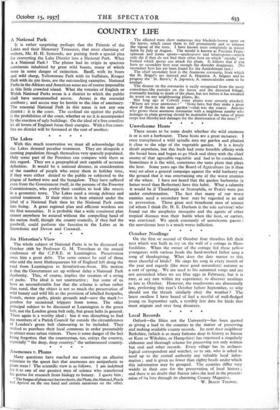Unwelcome Hosts
There seems to be some doubt whether the wild anemone is or is not a harbourer. These hosts are a great nuisance. I once transplanted a wild spindle into my garden and planted it close to the edge of the vegetable garden. It is a lovely shrub anywhere, but this bush had some horrible affinity with the broad bean and began to go black and shiny with the chief enemy of that agreeable vegetable and had to be condemned. Sometimes it is the wild, sometimes the tame plant that plays the host. Some years ago the Board of Agriculture (as it then was) set afoot a general campaign against the wild barberry on the ground that it was entertaining one of the worst enemies of the wheat. I have not heard that the garden barberries (a better word than Berberises) have this habit. What a calamity it would be if Thunbergia or Stenophila, or Prattii were put under condemnation. The fact that many of our worst enemies need a secondary host may be regarded as an aid to prevention. Those great and beneficent men of science (of whom I think Dr. H. E. Durham is the sole survivor) who found out the anopheles mosquito and the agents of other tropical diseases won their battle when the host, or carrier, was convicted. We speak constantly of unwelcome guests : the unwelcome host is a much worse infliction.






















































 Previous page
Previous page